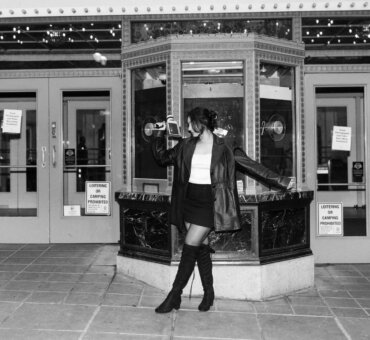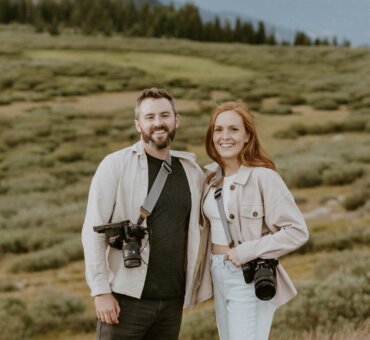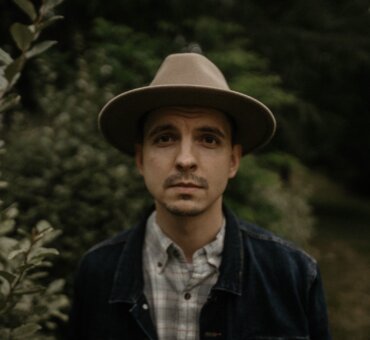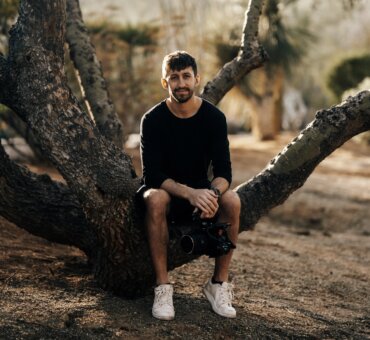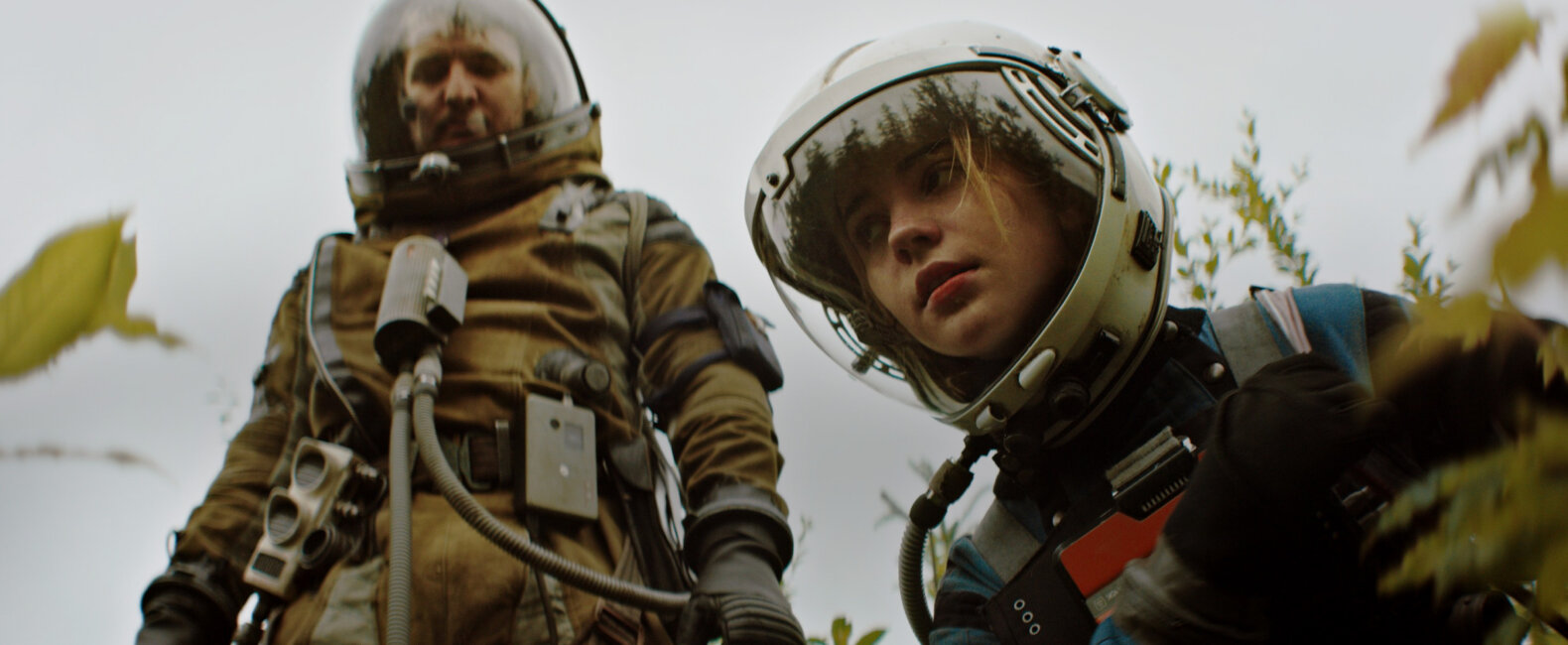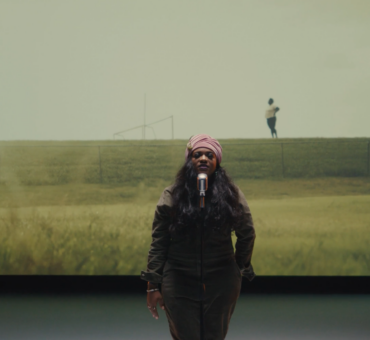Prospect isn’t just a good film for first-time directors. It’s a good film, period, which is a rare feat for any filmmaker, especially those who haven’t tackled a feature before. So, when we saw the immersive, haunting sci-fi film, we decided to track down its two directors, Zeek Earl and Chris Caldwell, to see what they had to share about their experience. Luckily for us, it turns out there was quite a bit.
Prospect was born as a short film and the duo developed it into an award-winning feature over the course of four years. The story behind the production of the feature (which premiered at SXSW and stars Pedro Pascal, Sophie Thatcher, and Jay Duplass) is filled with inspiring stories of creativity, endurance, and old-fashioned filmmaking techniques. The process was long and arduous, but one that Zeek affectionately compared to “getting a Ph.D.”
So, in that spirit, here’s what every filmmaker, first-timer or not, can learn from this talented directing duo. Class is in session.
1. You can learn a lot from financiers.
Funding can be a dirty word, depending on your relationship to it. But, when Chris and Zeek presented their script over and over again to financiers, it eventually became an act of refinement. Instead of wallowing in their lack of funding, they decided to use the feedback to make their film more practical and viable:
Zeek: Unlike some indie movies, we went a more traditional funding route in that after we made the short film, it received a lot of interest from Hollywood. But, to this point, it took us four years to get the feature financed. We re-wrote the script — I mean completely overhauled the script — at least three times.
As we approached each financier, we learned something new from them. I’m so glad that the first version of our script and our budget and our plan didn’t happen because I don’t think it would have done so well. It kept on getting rejected and we’d head back to the drawing board and sharpen it. It was rejected again and we sharpened it again. Each time we tried to learn something new, tried to ask as many questions as possible. We tried to get as many opinions as possible until the fourth variation — it was a much more realistic plan that we talked much more specifically about.
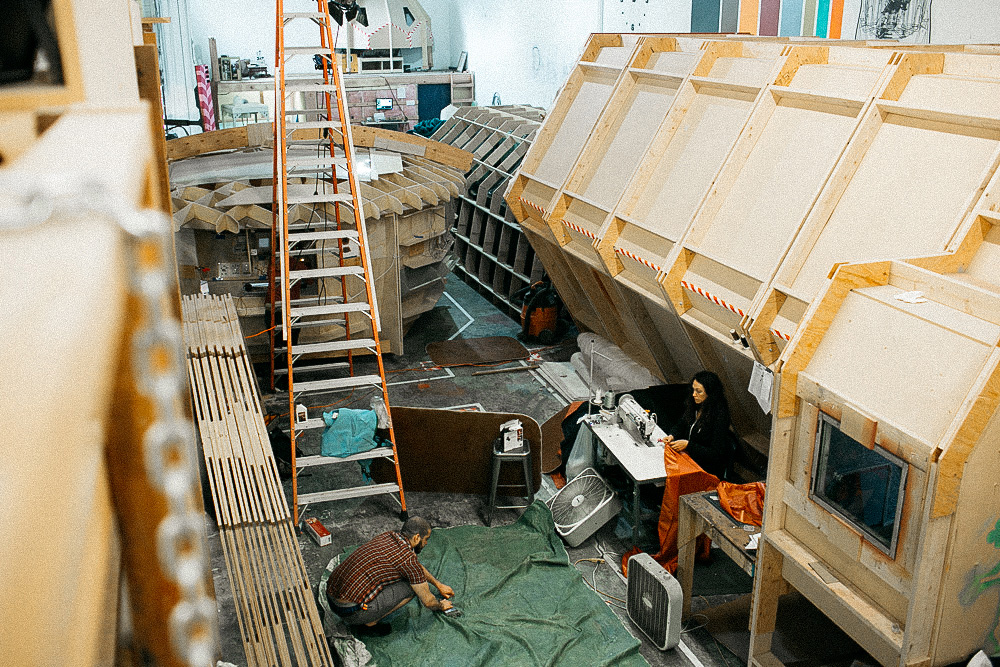
2. You have more resources than you realize.
There’s a misconception that most filmmaking skills are relevant only to filmmaking. But, when Zeek and Chris were faced with a tight budget to pull off their detailed sci-fi world, they decided to think outside of the box and find talent in some unlikely places. It turns out, there are plenty of production and set designers out there — they just may not know it yet:
Chris: We knew we were going to be working with limited resources. We were in a smaller, independent film space and we wanted to see how much we could do in terms of rendering this world practically in the physical objects: the props, the costumes, the sets. It goes back to our influences with classic sci-fi films like Alien, Blade Runner, and the original Star Wars. As opposed to a bunch of green-screen backdrops, we wanted to see how far we could push an indie budget by physically rendering the world.
Zeek: We started our own production design shop to pull it off. We just couldn’t do it in Hollywood or one of the bigger cities. So, we banded together an art collective in Seattle and got a warehouse for a year. We did a big seven-month build where we hired a bunch of our friends. None of these people have actually worked in movies before. They were bike makers and carpenters who came together for this big passion project.
Over the course of development, a lot of what we were doing was calibrating the script while working with the actual craftspeople who were going to make everything. Actually, this kind of hand-in-hand process of fine-tuning the story to fit practical production design paid off. We were able to build this big sci-fi world with a little indie budget.
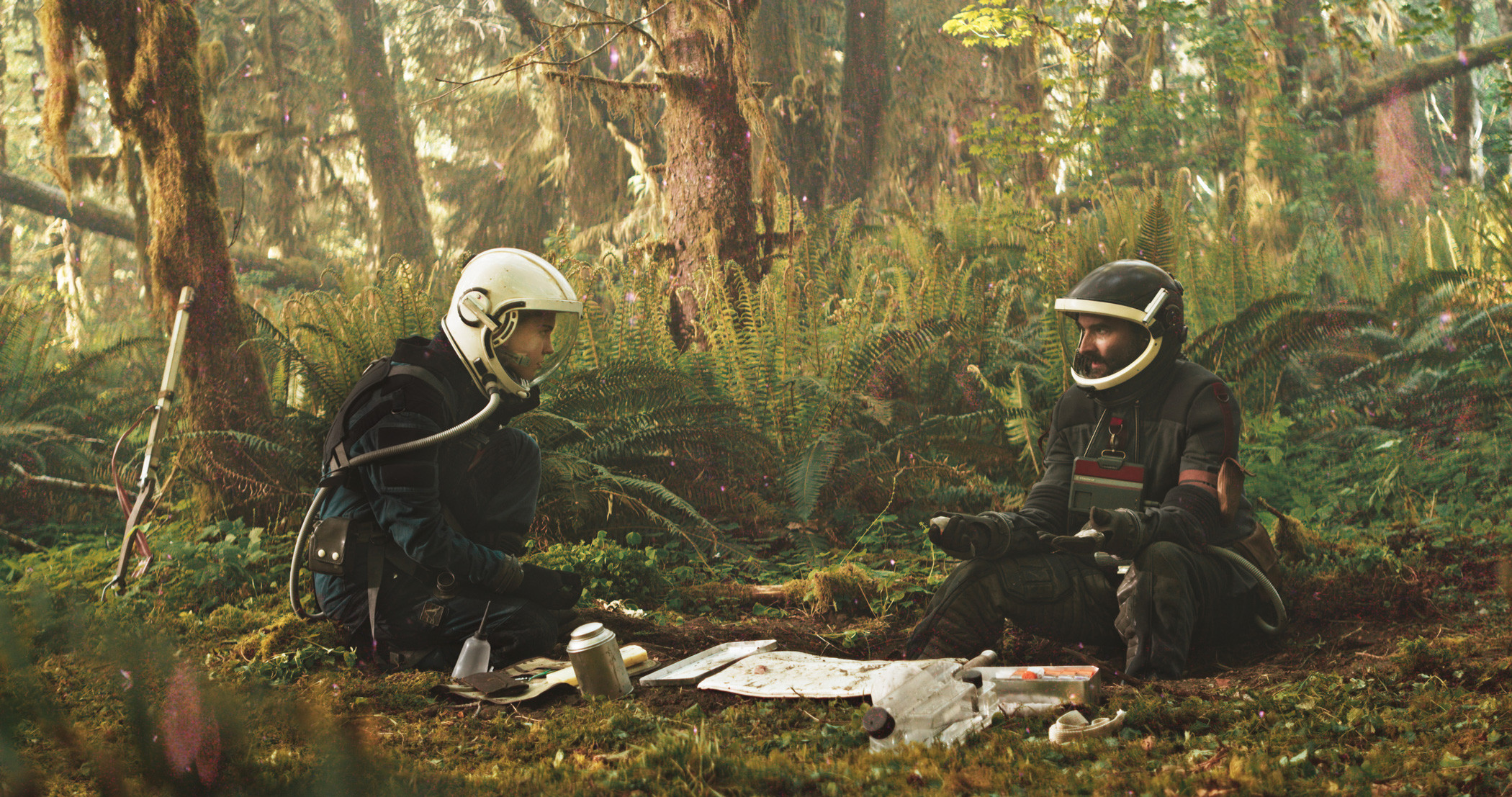
3. The “long haul” is an opportunity.
As Zeek mentioned earlier, this film took four years to get funding. Four years. That’s a lot of sitting and waiting for most. But, for Zeek and Chris, it was actually a lot of ideating, building, and refining. They used this timeframe as an opportunity to make their film better and better:
Zeek: We have this Google Drive file with a bunch of documents developing the backstory and elements of the world that aren’t even on-screen. You introduce a new element and then you have to figure things out. Why are they on this planet? Where did they come from? What are the economics? Time really allowed us to do that.
Chris: The details really accumulated over the course of that time. One of the things that caught us off-guard was just how emotionally exhausting the pitching and development processes are, with all of these false starts and close calls. Over the course of years, you start to wonder if this film is realistic. Is this something that’s going to happen?
But, we had time to keep going back to the script, keep going back to the world-building and the concepting, just continuing to finesse. It yielded an interesting development process, too, because the script was being developed hand-in-hand with a lot of the design for the world. The script and the design can inform each other simultaneously as opposed to having a locked script and then figuring out how to render it. It was a constant back and forth.
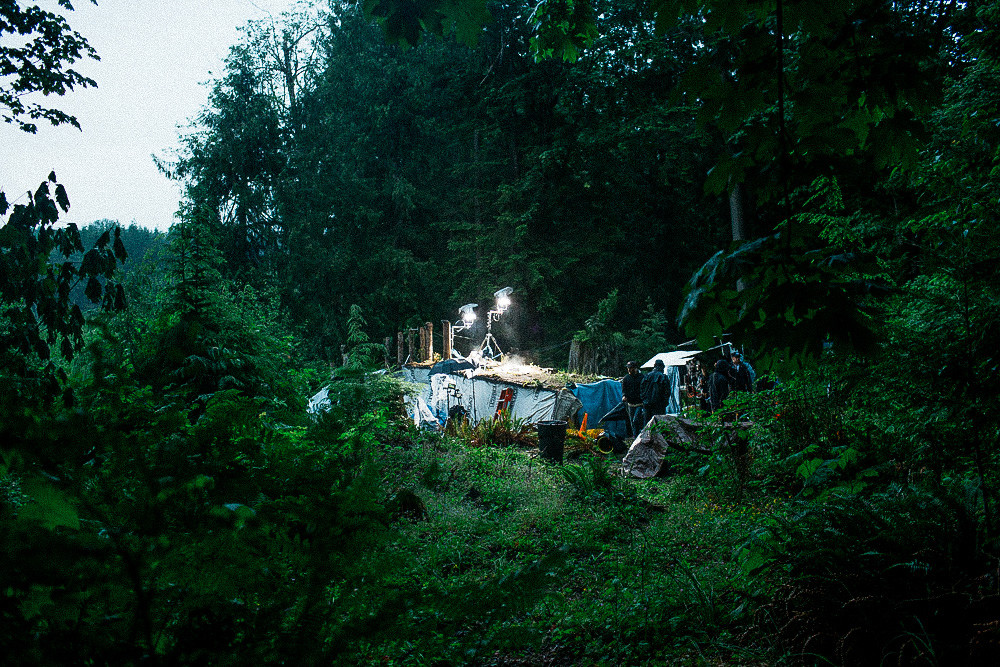
4. Fall back on your creativity.
Four years of production is exhausting. As we all know, exhaustion leads to stress and stress leads to, well, depression. During those dark times, Zeek and Chris had something to fall back on — and it turns out it was the thing that brought them to filmmaking in the first place: the creative process. So, adding to our prior point, honing production elements isn’t just good for the film; it’s good for the filmmaker. And, for these two directors, that therapeutic creativity paid off in a big way:
Zeek: There were some dark moments, definitely the darkest and most depressed I’ve ever been. No one was picking it up. We had numerous financiers pick it up and things fell apart. It was really hard.
Chris: One of the things that emotionally saved both of us in the process was continuing to work and develop. At one point we were wondering if Prospect was even constructed in a way that was viable to get financing. So, we wrote a whole other script in the same universe that was designed to be a little more focused and tighter. We continued to build our characters and stories. Then, when you pivot back, all of that development informs how you move forward. I think, as far as dealing with the doldrums, it’s important to always have a creative outlet where you can continue to improve. That’s what you have control over and if the film is getting better and better it’ll only improve your chances.
Zeek: Just to add to that, when Prospect was released and had its festival run, we went around to some Hollywood meetings. We got offered a development deal for a show by Amazon. We actually went back and listed a bunch of ideas we had developed through that period of pre-production in Prospect to put together this other world. It turned out to be a very, very fruitful exercise to keep pushing and developing new material.
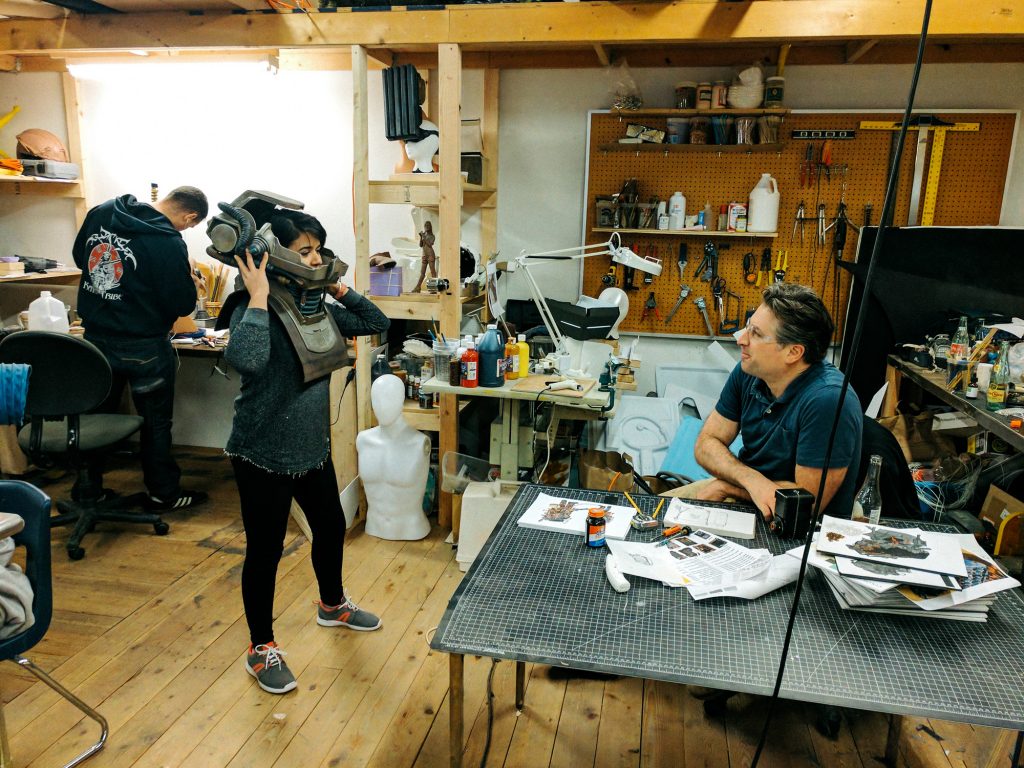
5. Outside perspective is invaluable.
When you spend years developing a film, you can’t help but have a distorted perspective on it. The entire crew has a distorted perspective on the project — not to mention all of the friends and family who want to see you succeed. So, when Zeek and Chris were putting the final details on Prospect, they knew they needed to get fresh eyes on the project:
Zeek: Being a filmmaker, you know, I have a mother who tells me that I’m a creative genius all the time. My friends and family are super supportive. Even your own producers and crew are super supportive. None of that means anything until you have a neutral party involved.
Chris: One of the most startling things in the post-production process was how hard it is to get a good perspective on your film, to experience it the same way another person is experiencing it. With Prospect, it’s just so packed with detail and world-building. Immersion was a huge priority for the experience of this film. We didn’t want there to be a lot of exposition in dialogue. We wanted things to be self-evident in design.
When we were editing we decided to do test screeners with audiences. I found myself craving that experience, to feel like I was watching the film for the first time. It’s really hard to see it with fresh eyes.
Zeek: Key takeaway: Don’t trust your parents.

6. First-timers have to go the extra mile.
Resumés exist because the job interview simply isn’t enough. If someone is going to invest in your talents, good words simply aren’t going to convince them. They need proof. The same goes for filmmakers and it’s definitely an uphill battle for first-timers. Zeek and Chris learned that if you’re going to ask for (a lot) of money, you need to be damn-well prepared to tell them why it’ll be worth it — better yet, show them:
Chris: It’s always hard to know what to attribute your success to, especially in an industry that’s so governed by circumstance and luck. But, over-compensating was our M.O. We were palpably aware that we did not hold the weight to get the job by virtue of itself. We needed to prove, above and beyond, that this was going to be something worthwhile. This mentality goes all the way back to the Kickstarter we ran to get funding for the short film. If you’re asking people for money, they have to have a compelling reason to give it to you. It’s up to you to give them the reason.
We put together all of the pitch materials, from producing the short film as a proof of concept to pumping our own time and energy into developing a book of concept art. I think a lot of filmmakers are fixated on the script, but I think all of the development materials were a big part of what eventually sold the film.
We could pull all sorts of common themes from Zeek and Chris’ work, but we believe the most important takeaway is this: these two were motivated by their big idea — the film and nothing else. When a roadblock got in their way, they kept honing the concepts. Prospect is being praised for its immersive atmosphere and attention to detail; that’s because this duo cared so much about every aspect that it couldn’t have been any other way.
So, in addition to all of these great lessons to be learned, here’s one last question to ask yourself before starting on your big dream project: Do you believe in your idea? If so, there’s no roadblock on earth that should stop you from bringing it to life.




































































